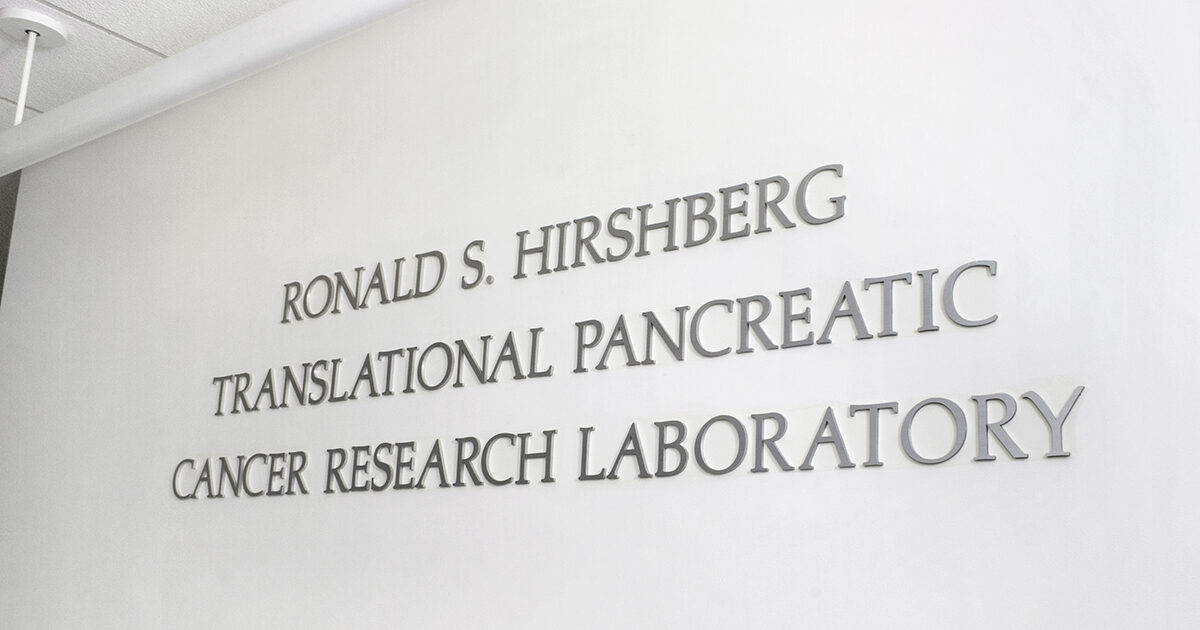This February marks 25 years since the creation of the Ronald S. Hirshberg Translational Pancreatic Cancer Research Laboratory. A cornerstone of our research program, this lab was the first at UCLA to be solely dedicated to investigating the driving forces and biology of pancreatic cancer. Dr. Guido Eibl’s research program is consistently funded by the National Institutes of Health (NIH) and continues to deepen our understanding of the intricate ways that diet, obesity and inflammation can accelerate tumor development.
We applaud Dr. Eibl and his lab and look forward to sharing more of the progress being made through their projects.
Publications from the Translational Laboratory in 2022
1. Statins inhibit inflammatory cytokine production by macrophages and acinar to ductal metaplasia of pancreatic cells. Gastro Hep Advances 2022; 1:640-651 (PMCID: PMC9615480)
S. Ako*, Y. Teper*, L. Ye, J. Sinnett-Smith, O.J. Hines, E. Rozengurt, G. Eibl. (* dual first authorship)
This original research paper reported that statins, FDA-approved drugs to treat hypercholesteremia, inhibited early pancreatic cancer development in cell culture and animal models. At least some of the effects were mediated by inhibiting macrophages, important inflammatory cells in the pancreatic microenvironment. This study supports the notion that statins may be beneficial in reducing the risk of pancreatic cancer.
2. Opposite effects of Src family kinases on YAP and ERK activation in pancreatic cancer cells: Implications for targeted therapy. Molecular Cancer Therapeutics 2022;21(11):1652-1662 (PMCID: PMC9630827)
J. Sinnett-Smith, T. Anwar, E.F. Reed, Y. Teper, G.Eibl, E. Rozengurt.
This paper described a novel signaling crosstalk in pancreatic cancer cells. In addition, the combination of SRC inhibitor and MEK inhibitor, FDA-approved drugs to treat certain types of human cancers, very strongly inhibited pancreatic cancer growth in mice. This novel finding indicates a potential role of these drugs for a combination therapy in pancreatic cancer.
3. Body Mass Index Trajectories Across the Adult Life Course and Pancreatic Cancer Risk. Journal of the National Cancer Institute: Cancer Spectrum 2022;6(6) (PMCID: PMC9651977)
S. Arjani, P.F. Saint-Maurice , S. Julián-Serrano, G. Eibl, R. Stolzenberg-Solomon.
In collaboration with an epidemiology group at the NCI, this manuscript described the risk of developing pancreatic cancer in humans with various body mass index (BMI) trajectories across their adult life. It unequivocally shows that subjects that were overweight and/or obese as young adults and stayed in the overweight/obese category later in life carry the greatest risk of developing pancreatic cancer. The risk was greater in males than in females.


